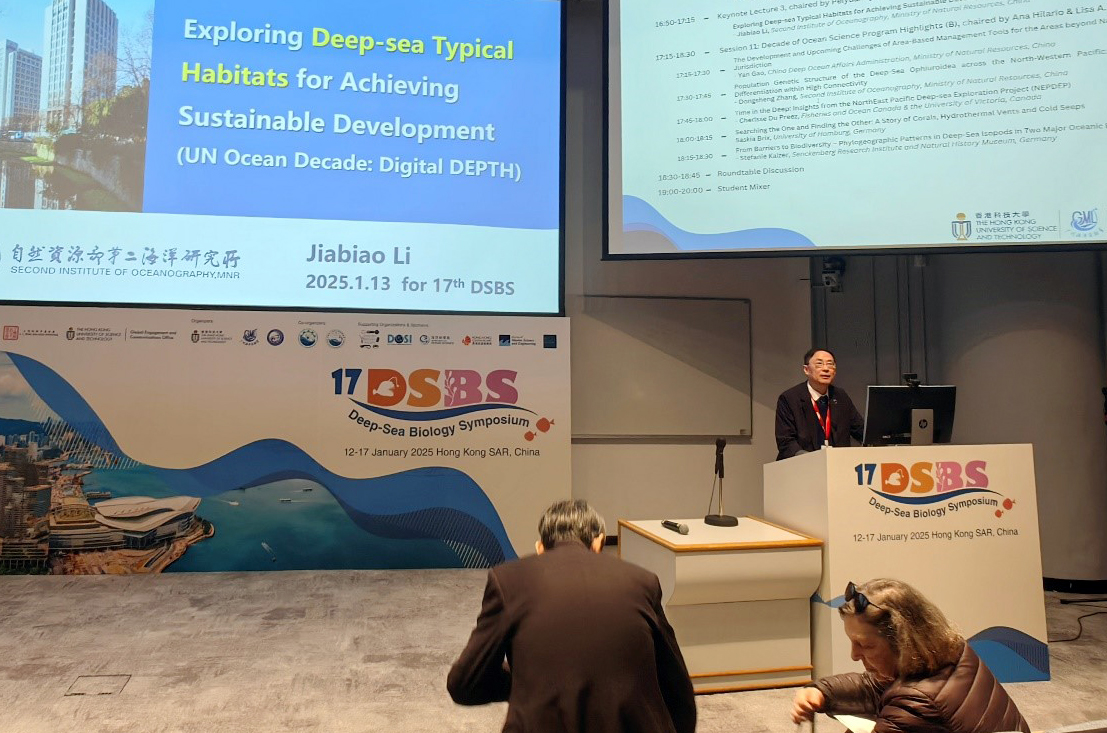

From January 12 to 17, Director Fang Yinxia and Academician Li Jiabiao led the delegation of the SIO to attend the 17th Deep-Sea Biology Symposium (DSBS) held in Hong Kong. They engaged in exchanges and discussions with over 300 scientists in the field of deep-sea biology research from dozens of countries worldwide to promote the progress of the “Digital Deep-sea Typical Habitats Programme (Digital DEPTH)”.
This is the first time that DSBS has been held in Asia since its inception in 1977. It brought together experts from all over the world in the fields of deep-sea biology, physical oceanography, marine resources and environment, and ocean observation technology to conduct in-depth discussions and exchanges on deep-sea frontier research, scientific and technological challenges and future directions. Academician Li Jiabiao delivered a keynote speech titled “Exploring Deep-sea Typical Habitats for Achieving Sustainable Development”, analyzing the vulnerability and resource potential of deep-sea ecosystems and elaborating on how to achieve sustainable utilization of deep-sea resources through science and technology. The speech also introduced the progress and achievements of the UN “Decade of Ocean” Big Science Project “Digital DEPTH”, looked ahead to the direction of global scientific cooperation and technological innovation in the field of deep-sea habitats, and called on the international community to strengthen interdisciplinary cooperation in the field of deep-sea research to jointly promote the protection and rational development of deep-sea ecosystems.
The symposium featured a number of workshops covering biodiversity, microorganisms, ecology and conservation, genomics and metagenomics, and other fields. Researchers Wang Yuntao and Zhang Dongsheng presented reports titled “Development and Future Challenges of Area-Based Management Tools (ABMT) in Areas Beyond National Jurisdiction (ABNJ)” and “Population Genetic Structure of Deep-sea Ophiuroidea in the Northwest Pacific Ocean: Subtle Differentiation Under High Connectivity”, respectively, and conducted in-depth exchanges with participants on scientific exploration and management of deep-sea organisms.

